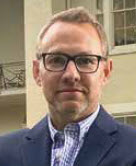 By: Kris Erskine
By: Kris Erskine
(Interviewed by Shelton
Moomaw)
Born in Brewton, Alabama, in 1963, Jeff Abrams, was fueled by a childhood dream to preach overseas. Abrams grew up during the era of Civil Defense drills, where students in schools across the country practiced hiding from an atomic blast under their desks. Abrams, now a pastor, recalls that he “always wanted to preach, and grew up praying and dreaming for the day he could go overseas and preach Jesus.” But this isn’t a story just about preaching, it is a story of humanity and compassion.
In early February 1991, while attending a Bible lectureship at Freed-Hardeman University, Abrams was listening to a lecture and began to overhear a speaker in another room. The other speaker was a missionary to India and had such “great passion,” Abrams says. This speaker was “really pounding the point that we need to be going overseas with the gospel of Jesus.” He said “brother, if you aren’t going to India because you are afraid of the taste of the food, then your soul is going ‘the wrong way.’ That hit home,” Abrams says.
This message that “hit home,” was timely; several months later, on the day after Christmas, 1991, the Soviet Union collapsed. In 1993, less than two years later, Abrams found himself stepping foot on Ukrainian soil. In this, his first trip outside the United States, Abrams remembers being anxious and tired, and feeling alone. But he remembers “seeing a Coke sign in a remote area of Eastern Ukraine,” and adds that at that moment, “I knew I’d be all right.” It is the small comforts of familiar things that seem to assuage the worries of weary travelers far from home. This was Abram’s first of more than one hundred trips to Ukraine.
Over the years, mission work in Ukraine has changed. Ukraine has become more Westernized, materialism has taken hold. As the Ukrainian perspective of the West subsequently shifted, missionaries have adapted their approach. Abrams’s ministry began organizing Camp Amerikraine, a ministry for Ukrainian families. Abrams also began offering English-language classes while using the Bible as the course textbook.
After spring of 2022, Abrams’s visits were marked by navigating a war-torn landscape. Despite the risks posed by the ongoing conflict, the ministry continued. In fact, Abrams increased the number of trips he made each year. Much of his ministry was in Russian-speaking parts of Eastern Ukraine, particularly in the town of Kramatorsk, in the Donetsk region, a town that today has been shelled by Russian forces but has not yet been subject to the same kind of fierce battles that have been seen in Kharkiv and Mariupol.
The outbreak of war in 2022 brought yet another shift in methods. Abrams’s ministry, Rescue Ukraine, rented buses to evacuate families — buses filled primarily with the elderly, and women and children, who said goodbye to their fathers, sons, brothers, and husbands. Abrams’s ministry now also provides food to Ukrainian refugees in Poland. But all of his church family that desired to leave their war-torn nation have been able to leave. Some did not leave because they refused to abandon their beloved family pets.
From coordinating evacuations to delivering groceries, Abrams’s commitment to Ukraine remains. Yet throughout The Stories Project interview he insists, “I promise I’m not noble…, I don’t have a death wish and didn’t do anything overtly foolish,” but, “I felt guilty to be safe and here while my friends were in shelters and scared, and cold. I couldn’t have lived with myself if I didn’t go.”
The resilience and courage of the Ukrainian people has left an indelible mark on Abrams, deepening his sense of compassion. He says he is blessed to witness their “ridiculous courage.” There has also been a surge of baptisms since the war began in 2022. The influx of hundreds of thousands of refugees presented new challenges, but also opportunities for spiritual growth. In the face of uncertainty, hope abounds. Abrams adds, “War causes a lot of people to reassess their lives, make sure they are ready for that appointment [with death].”
But the war has also removed barriers, and there has been more inter-faith cooperation. In war, Abrams notes, people are “less concerned with which part of the Bible you believe or don’t believe,” adding, “You realize that you could die today. This changes your perspective. You hear air raid sirens. And it’s very real.”
As Abrams prepares for his next trip to Ukraine, scheduled for this June, his resolve remains unshaken. On the humanitarian tragedy unfolding in real-time, Abrams reflects that there are, “so many mass graves, and children [being killed]. It is unspeakable, what’s happened. We can’t look away. We cannot get bored by this story. We have politics. We have football season. We have our own family issues. I get that. But… we cannot rest until this is better.”
Jeff Abrams has been making annual trips to Ukraine since 1993. He is pastor of Tuscumbia Church of Christ and was interviewed by Shelton Moomaw. You can learn more about Pr. Abrams’ ministry at RescueUrkaine.com.
This profile was taken from an oral history conducted as part of The Stories Project, a project developed by Dr. Kris Erskine for his students, future history and social science teachers in and around Athens and North Alabama. To listen to the full oral history, you can go to StoriesProject.org. The Stories Project seeks to preserve the stories of average folks and not-so-average folks in and around the Athens area. If you’d like to be interviewed and have your story preserved and available on the Athens State University digital archive, please go to the website above and make a request through our online contact form. We would love to hear from you.
By: Kris Erskine, Assistant Professor of Secondary History / Social Studies Education
Athens State University









 June 20, 2025
June 20, 2025



